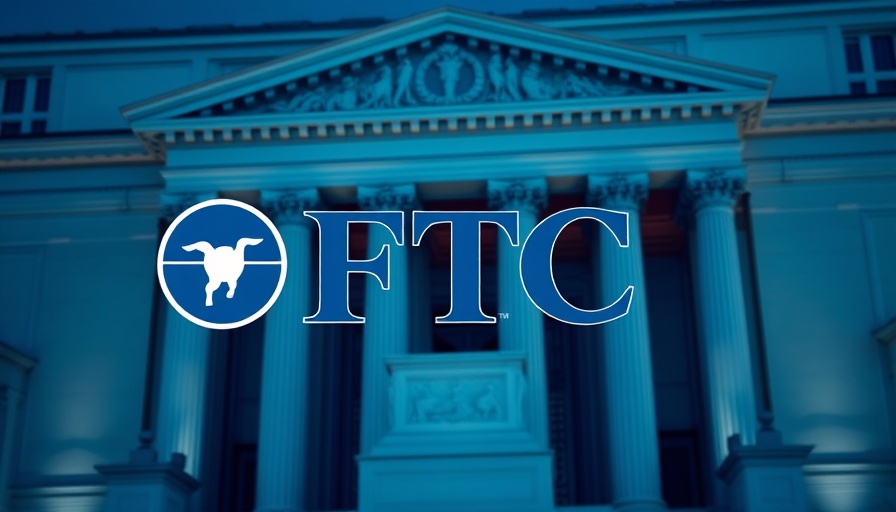
FTC Takes Strong Stand Against Phantom Debt Collectors
In a decisive move aiming to protect consumers, the Federal Trade Commission (FTC) has successfully halted a phantom debt collection scheme that has reportedly defrauded millions of Americans out of their hard-earned money. A federal court issued a temporary restraining order against operators Ryan and Mitchell Evans and their affiliated companies, freezing their assets and ceasing operations. This action comes after numerous complaints detailing how these operators sent fictitious debt collection notices demanding money for non-existent debts, which left consumers in fear of legal repercussions.
Understanding the Mechanism of the Scam
Operating under names such as Blackrock Services and Capital Legal Services, the scammers utilized a range of deceptive tactics. They not only threatened consumers with immediate legal action but also harassed family members, creating a false sense of urgency. Many consumers were sent letters citing legal terms that made the false claims appear credible, often alongside sensitive personal information to disarm their skepticism. These practices violate the Fair Debt Collection Practices Act (FDCPA), which is designed to prevent abusive and misleading practices in debt collection.
A Growing Concern in Consumer Protection
Phantom debt collection schemes are more than just business malpractices; they undermine consumer confidence in financial systems. Each year, countless Americans fall victim to these scams, leading to not only financial distress but also emotional tolls due to threats of arrest or wage garnishment. The FTC's latest actions highlight a growing commitment to combat these scams and safeguard consumer rights. Despite existing regulations, the high incidence of fraudulent tactics raises questions about consumer awareness and the robust enforcement of protective laws.
The Broader Implications for Business Brokers
For business brokers, acknowledging such threats is essential. As they interact with clients facing financial uncertainties, they must stress the importance of due diligence, risk assessment, and consumer education in avoiding similar scams. Moreover, brokers serve as a key link in helping individuals navigate the complexities of credit and finance while promoting awareness around what constitutes legitimate debt collection practices.
What Can You Do?
In light of these developments, individuals and business brokers alike are urged to remain vigilant. If you or clients ever receive communications that feel dubious—especially those invoking fear—report them to consumer protection authorities. Recognizing the signs of phishing scams or false collections can save individuals from potential financial ruin.
Now more than ever, consumers should empower themselves with knowledge about their rights. Awareness can transform the landscape of risk in the financial arena.
 Add Row
Add Row  Add
Add 




 Add Row
Add Row  Add
Add 

Write A Comment